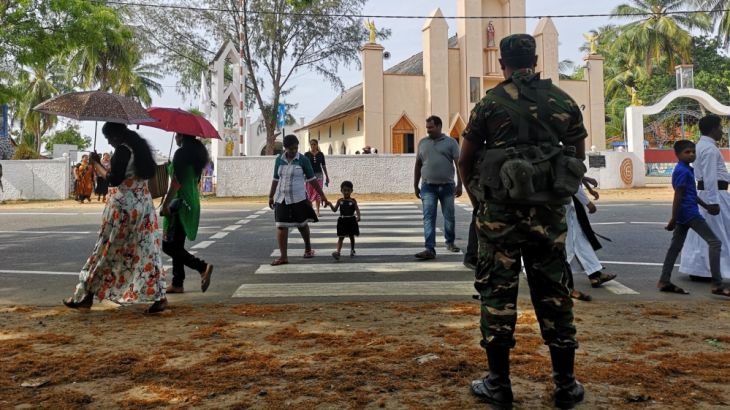
Sri Lanka’s New War
101 East investigates what led to Sri Lanka’s Easter attacks and whether they could have been prevented.
Sri Lanka’s deadly Easter Sunday attacks have exposed a new divide in the island nation.
A local ISIL-inspired Muslim group carried out the coordinated suicide bombings, killing 253 people at churches and luxury hotels.
Keep reading
list of 4 itemsSri Lanka to probe allegation of intelligence complicity in 2019 bombings
Protest in Sri Lanka on fourth anniversary of Easter bombings
Sri Lanka ex-leader ordered to compensate Easter bombing victims
It shocked Sri Lankans because faith was never a factor in the country’s brutal 26-year civil conflict that ended in 2009.
But in the past decade, religious minorities – including Christians and Muslims – have been subjected to riots and discrimination.
Security analysts say a rise in more conservative teachings, values and behaviour by some Muslims has made parts of the community susceptible to radicalisation.
“There have been several signs that radicalisation and extremism is becoming a problem in this country,” says Nilanthan Niruthan, a counter-terrorism advisor to Sri Lanka’s armed forces.
“We really missed the trick here in terms of keeping an eye on our own safety.”
In the violent aftermath of the attacks, soldiers are out in force on Sri Lanka’s streets with wide powers to search, interrogate and arrest.
And with a government ban on face coverings, and shops and homes owned by Muslims vandalised or burnt down, Muslim leaders are voicing fears that a whole community is being demonised for the actions of a few.
As the nation reels with grief, 101 East reveals the religious and ethnic tensions simmering beneath the surface and investigates whether faith is the new frontline in Sri Lanka.
Join the conversation @AJ101East